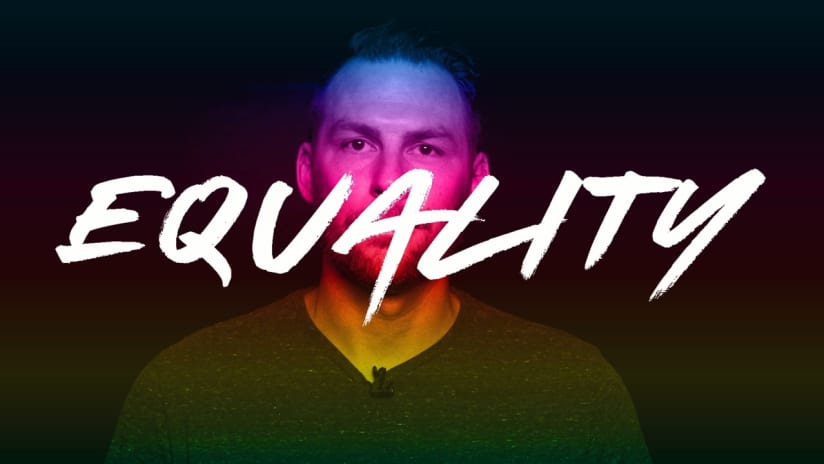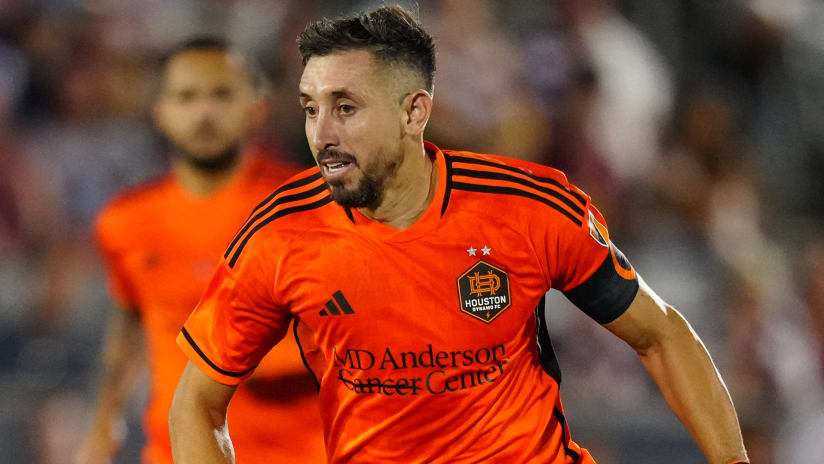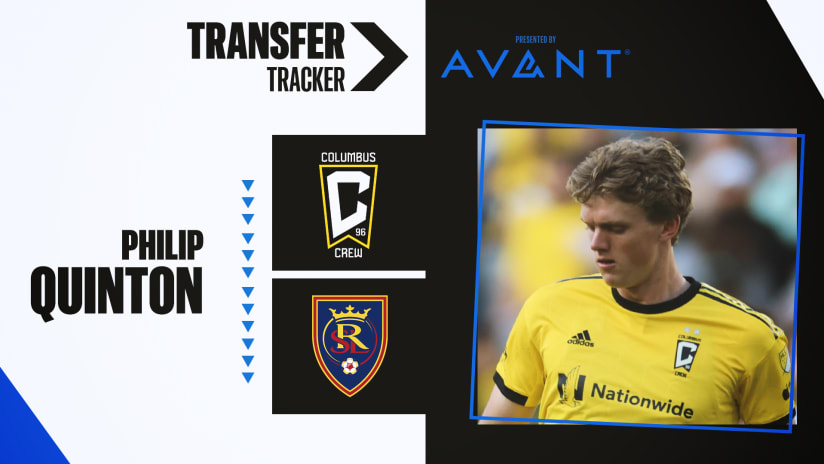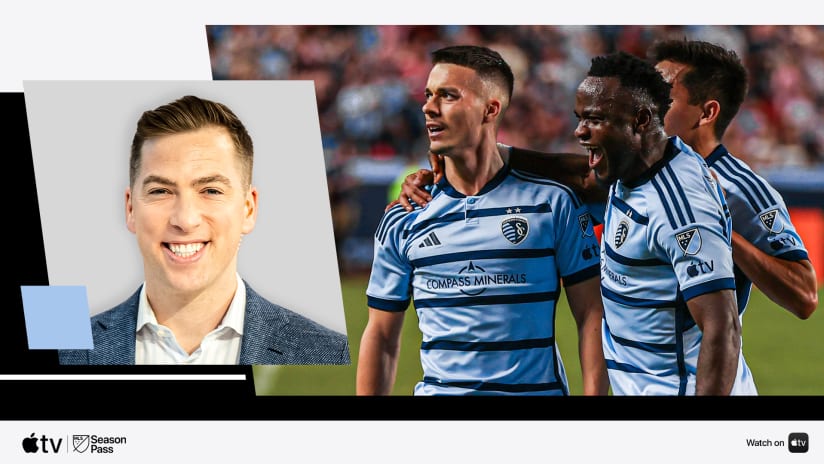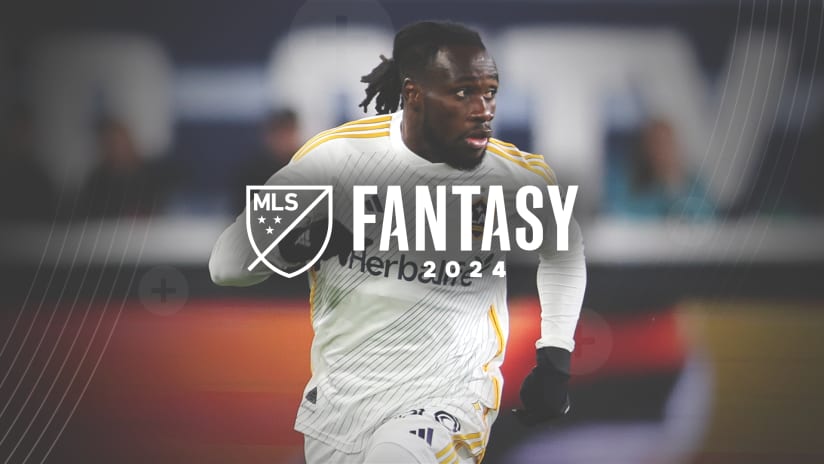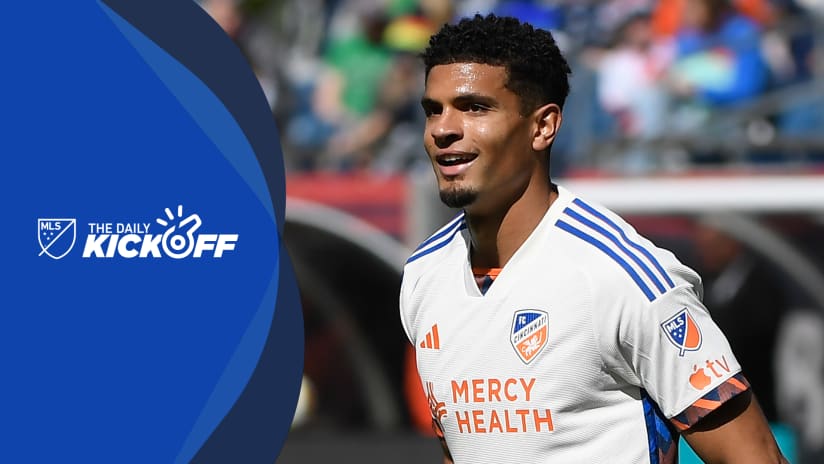"I'm playing for Pride, because as the son of a proud gay male, I understand the importance of acceptance, understanding and opportunity."
—Brian Dunseth, former MLS player and current RSL broadcaster
June is Pride Month, and like many across the United States, Real Salt Lake and its sibling clubs Utah Royals FC and Real Monarchs SLC marked the occasion with “Pride Night” matches to celebrate and support the lesbian, gay, bisexual and transgender community.
The commemoration of Soccer For All held special meaning for RSL broadcaster and former MLS player Brian Dunseth and his family.
Dunseth is a doting father of three who aims to raise his sons to be tolerant and loving human beings. He’s also the proud son of a gay man whose own experiences influenced his upbringing, as he explained to Salt Lake Tribune reporter Maddie Lee in moving fashion, revealing that he had been subjected to schoolyard taunts about his father’s sexuality at an early age.
“It’s not something that I’ve been asked about too often,” Dunseth told MLSsoccer.com. “It was never a secret by any means, but it was just something that maybe in the general public I never had the right forum or the right opportunity to talk about.”
Dunseth’s parents divorced early in his childhood, and he learned about his father’s orientation at age 11. It never occurred to him that it might be something to hide, something that could be used against him as it was on that basketball court in his native Southern California.
He credits his stepfather for introducing him to sports and putting him on the path that took him to a soccer and media career. But his biological father, who lived in San Francisco for most of his childhood and adolescence, provided irreplaceable guidance to Dunseth at a pivotal point early in his adult life.
“My father is HIV-positive and has been since I was 21 years of age,” said Dunseth, adding that his father lost his life partner and many close friends to AIDS. “So having those conversations about life decisions, how moments, decisions in a split second could lead to implications for the rest of your life and the importance of that, really shaped my identity as a young man. It was probably one of the most important things to experience in real time, seeing life through his eyes and seeing so many people pass away up in San Francisco through the timeline of the '80s and '90s and early 2000s.
“To watch him go through what he was going through at the time, and more importantly it was the conversation about life in general and decision-making, especially being a young 20-year-old that was a professional athlete traveling the world with the US national team Under-20s and Under-23s, the decision-making off the field and character-building about who I was as a human being, as a person.”
His father has lived with HIV far longer than anyone was expected to at the time of his diagnosis, and today is even pondering a move from Palm Springs, California to Utah to be closer to his grandsons.
“It was a life sentence back then, there was no way out,” said Dunseth. “Everyone at the time basically threw up their hand and said there’s no way out of this. To see how he’s navigated that and taken into account his own personal health through his journey has been a wonderful aspect to watch. And the relationship that he has with my children, the acceptance – they don’t know anything else, they just know Grandpa and the importance of that. For me, what that means for them, the hopes that I have for the next generation are massive because of those experiences.”
One of the first members of Project 40, the MLS initiative known today as Generation adidas that signs talented young players to fast-track their professional development, Dunseth considers himself to have “grown up in a locker room,” and witnessed plenty of homophobic language – “words that were being used to attack the strength of the person’s character or manhood,” he says – and other unenlightened behavior during his playing days.
He believes today’s players encounter a far more tolerant environment, however, and hopes to see others follow in the footsteps of Robbie Rogers, who made history as the first openly gay man to compete in a top North American professional sports league with the LA Galaxy in 2013.
“I feel like a soccer locker room is probably, if not the most, then one of the most accepting locker rooms in professional sports because of the diversity in backgrounds,” Dunseth said. “From regions and countries to religion to ethnicity, language – all of that. It’s so diverse now. And for the most part – again, I’m on the outside looking in now – but the conversations I’ve had with all of these young kids, it’s not a big deal. Everything that they’ve been exposed to growing up, there’s no line drawn in the sand with anything about this.
“Hopefully someday we have the next Robbie Rogers, because I think it means the world for these kids that are struggling with their identity behind the scenes, to know that they have someone that they can look up to.”
In recent years Dunseth began to realize that others may be going through similar experiences to his own, and it’s helped him find his own voice, especially as the topic of LGBTQIAPK rights has become a national conversation. He credits conversations with his friend Branden Steineckert, the drummer in punk outfit Rancid and a well-known RSL fan, after a mutual friend lost a brother to suicide.
“Over those conversations I just realized that was an opportunity for me to potentially get involved in something that I believe in and could use my own voice and my own platform to help somebody,” recalled Dunseth. “If I could use this platform to help just one person, just let one person know that they’re not alone, that they’ve had a similar upbringing or experience that I’ve had, I thought it could be pretty cool.”

